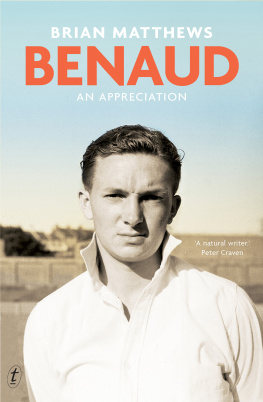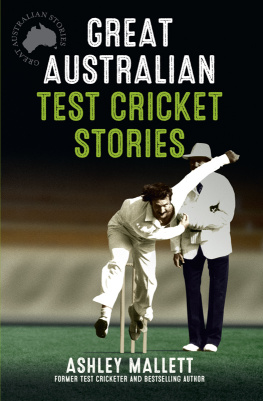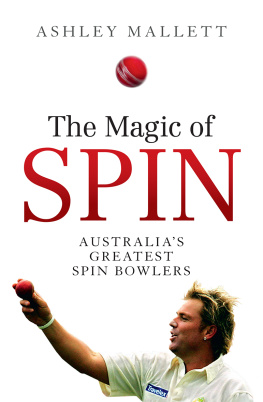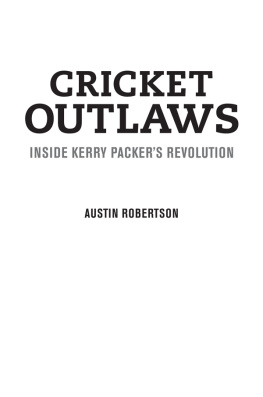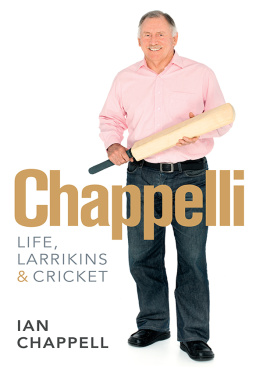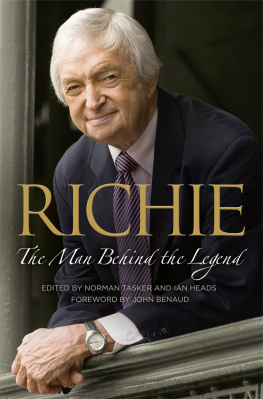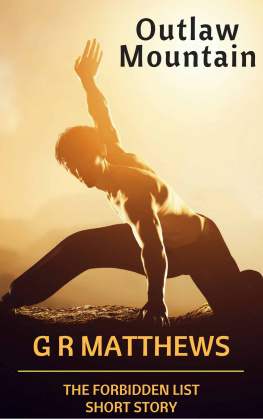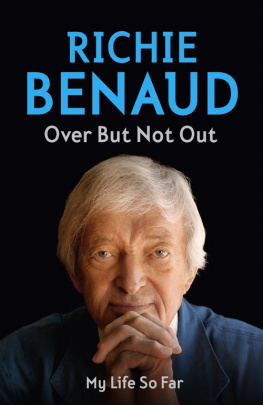

ALSO BY BRIAN MATTHEWS
The Receding Wave: Henry Lawsons Prose (1972)
Louisa (1987)
Quickening and Other Stories (1989)
Oval Dreams (1991)
Magpie: A Novel (with Peter Goldsworthy; 1992)
Federation (1999)
A Fine and Private Place (2000)
As the Story Goes (2001)
The Temple Down the Road (2003)
Manning Clark: A Life (2008)
textpublishing.com.au
The Text Publishing Company
Swann House
22 William Street
Melbourne Victoria 3000
Australia
Copyright Brian Matthews 2016
The moral right of the author has been asserted.
All rights reserved. Without limiting the rights under copyright above, no part of this publication shall be reproduced, stored in or introduced into a retrieval system, or transmitted in any form or by any means (electronic, mechanical, photocopying, recording or otherwise), without the prior permission of both the copyright owner and the publisher of this book.
First published by The Text Publishing Company 2016
Book design by Imogen Stubbs
Cover photograph by Harry Martin / Fairfax Syndication
Typeset by J&M Typesetting
National Library of Australia Cataloguing-in-Publication entry
ISBN: 9781925355581 (paperback)
ISBN: 9781925410013 (ebook)
Creator: Matthews, Brian (Brian Ernest), author.
Title: Benaud : an appreciation / by Brian Matthews.
Subjects: Benaud, Richie, 19302015. Cricket playersAustraliaBiography.
Television journalistsAustraliaBiography.
Dewey Number: 796.358092
For Psiche and Philip Hughes
and
Sue and Rick Hosking
CONTENTS
Whether diving desperately to make his ground, leaping high in the gully for a catch or just picking himself up after some acrobatic fielding, Richie Benaud always looked the parttrim, in control, somehow always uncreased, unstained, impeccable.
MICHAEL CHARLTON, ABC cricket commentary
The team which had the doubtful benefit of my part-time bowling and occasionally slightly more convincing batting was the Adelaide Graduatesa group drawn mostly from the University of Adelaides Economics Department, with the odd Flinders University academic, like me, thrown in. We played in and lost two grand finals in the five or six years I was with them, so it wasnt as if we lacked talent. Yet our team list was remarkable not so much for performances as for fame of a certain, non-cricketing kind.
One of the opening batsmen was Geoff Harcourt, a professor of economics at the University of Adelaide and later a Cambridge academic of great distinction. Our wicketkeeper was Keith Hancock, foundation professor of economics at Flinders University, and later vice-chancellor. Dick Blandy, a top-order batsman, became a professor of economics at Flinders and later the head of the National Institute of Labour Studies. Tony Hosking was an up-and-coming geologist. And then there were various teachers, writers and eccentrics. It was a wonderful team to be a part of, in a good competition: the cricket was serious and of a fairly high standard but the Graduates also knew how to enjoy themselves on and off the field and, grand-final losses notwithstanding, the end-of-year dinner was legendary.
The place was our home ground, the beautiful Waite Oval in suburban Adelaide. The time: late October and the first round of the 196869 season for teams in the south-suburban competition. In the field were the Adelaide Graduates CC, having won the toss and put the other mob in. On the back foot at 7 for not many were our opponents. While we of the Graduates were getting changed rumours had circulated that the opposition were a couple of players shortnot an unusual problem for amateur teams at the start of a new seasonand that theyd scoured the nearby Edinburgh Hotel for stand-ins. This was why it seemed like a good toss to win.
And so, with another batsman falling to the pace of our strike bowler, Tony Hoskingwho was the object of great interest among several grade clubsin came their number eight. He was the quintessential cricketerat least to look atas he strode out to face the crisis in the middle. His whites were immaculate, his pads clean and bright, his cap balanced, just short of jaunty. He carried his gloves in one hand, bat in the other.
He was one of those batsmen who take block before ceremoniously and rather slowly putting on the gloves. And having done that, he was also one of those batsmen who then gaze intently round the field, pointing the bat at each fieldsman as if mentally burning the image into his memory. Finally, he settled into his stance and faced the storming Hoskingwhose searing yorker took the middle and off stumps right out of the ground.
Walking off with the same panache hed displayed on arrival only minutes earlier, the well-dressed cricketer met our deep fine leg, Dick Maguire, as the fieldsman headed to the centre to celebrate. Bad luck, mate, said the amiable Maguire. First hit of the season, eh?
The bloke looked at him, stupefied. First hit ever, he said, and continued gratefully towards the anonymity of the sheds.
He showed just enough emotion to let everyone know he was pleased, and that was it. RICHIE BENAUD on leg-spinner Stuart McGills control
On 18 February 2010 I wrote to Richie Benaud to propose my idea of writing his biography. Dear Richie Benaud, I began, after some agonising over the stiff Dear Mr Benaud or the too matey Dear Richie. I wrote truthfully, Ive been pondering for the past month or so how to get in touch with you without being or appearing intrusiveand decided on a good old-fashioned personal letter.
I began by quoting from a piece of reminiscence I had written but failed to finish years earlier about the Fourth Test at Old Trafford in 1961, which went some way to explaining why I was keen to write about him. I then got down to the business of trying to sell myself to him. To do this I thought it necessary to outline my claims and qualifications in the dicey art of biography. I accomplished this exercise after thirty or more attempts and finished up with a few more relevant personal details, such as my sports historya modest proficiency at Australian Rules football, cricket, squash, badminton and long-distance running, including five marathons. I even added my best time.
I concluded the letter by saying, I hope you can look with some tolerance on this proposal and that you will excuse its length. There didnt seem to be much point in making a half-hearted pitch. I look forward to discussing it further with you whenever and wherever suits you best.
Less than two weeks later I had my answerbrief, courteous and to the point, on an A4 sheet headed in bold sixteen-point capitals:
RICHIE BENAUD OBE
Dear Brian Matthews
Thank you for your letter concerning the Old Trafford Test of 1961 and the fact that you have spoken to Penguin about a biography of me.
My situation has always been, and will not change, that anyone can write a biography on anyone else but that I dont wish to play any part in it at all. Every so often I receive a request similar to yours and the answer remains the same.
Best of luck with your endeavours and your writing.
Yours sincerely
[signed]
Richie Benaud
This was disappointing but not altogether surprising. I had heard from both authoritative and dubious sources that Benaud had strong views about such ventures, viewsif you believed the full gamutthat ranged from polite disinclination, through determined rejection, to a J. D. Salinger-like reclusiveness. Much more reliably, I knew about my friend Rob Steens experience.
Next page
